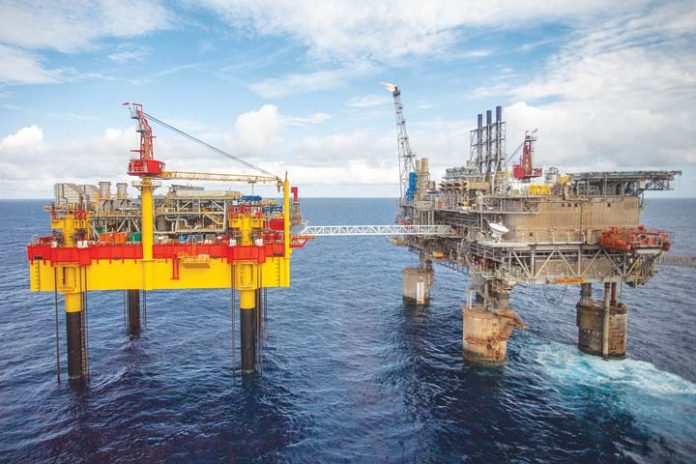The Philippines must drill for gas right away at Recto Bank. The country’s sole gas field Malampaya will run out in three years. It will take five years to get a new rig operational. With no huge alternative energy source, Filipinos would plunge into blackouts. Factories, hospitals, government offices, schools and malls will shut down. The economy will collapse.
Retired Supreme Court justice Antonio Carpio reiterates that warning, while China is again fooling the Philippines into “joint development” of Recto (Reed) Bank. Beijing will just protract the talks, like it did in 2020-2022, to bring Manila to its knees.
“The Chinese Communist Party knows we are under the gun,” Carpio told Sapol-dwIZ on Saturday, September 10. Its aim is to make Filipinos desperate at the brink of economic ruin, “so we will accept China’s illegal claim to Recto.”
Visiting Manila late August, CCP International Department Minister Liu Jianchao said the two countries are ready to resume talks on joint development. “We cannot accept that term,” Carpio said.
“In its Foreign Ministry website China defines ‘joint development’ to mean it owns the natural resource, but will allow others to co-develop the area out of the goodness of its heart. Silly.”
In an earlier Memorandum of Understanding, Beijing accepted Manila’s preferred term: “joint exploration.”
“That term stresses that we have sovereignty and sovereign rights over Recto,” Carpio explained. “Our laws shall prevail. Our government already has awarded the Recto development contract to Forum Energy. We will simply subcontract part of the work to the state firm China National Offshore Oil Company.”
“Those MoU provisions were in line with our constitution,” Carpio said. “As well, with the 1982 UN Convention on the Law of the Sea, and the 2016 Permanent Court of Arbitration verdict.” Manila and Beijing signed two other documents. CNOOC’s participation would have settled disputes over the West Philippine Sea, as China accepted Philippine sovereignty.
But Beijing negotiated in bad faith. “Before the signing of the fourth and fifth agreements, including CNOOC’s subcontract, Beijing suddenly changed its tune,” Carpio recounted. “It demanded that ‘joint exploration’ be replaced with ‘joint development.’ We cannot accept that.”
Recto is a fully submerged feature in the Philippines’ 200-mile exclusive economic zone. “The Constitution and international law grant Filipinos exclusivity to benefit from the resources within,” Carpio said.
It is 800 miles distant from China. “The maximum maritime jurisdiction that any country can claim is 350 miles – 200 miles EEZ plus 150 miles extended continental shelf,” Carpio explained.
Recto is 120 miles off Palawan. It holds 5.4 billion barrels of oil and 55.1 trillion cubic feet of natural gas, the US Energy Information Administration estimates.
Beijing claims Recto to be within its “nine-dash line,” concocted by landlubber officials in the 1940s. But The Hague ruling rubbished it.
Reacting last week to Liu, former foreign secretary Albert del Rosario said the Philippines should proceed to drill petroleum, like Malaysia and Indonesia did last year in their EEZs. “Dialogue between two nations is always welcome,” he said. “The only good faith conduct of China is not to prevent or harass our countrymen from exploring and developing our natural resources.”
On July 27 a trespassing China Coast Guard vessel aimed a machine gun at female members of an unarmed Philippine Fisheries craft. The latter was en route to resupply Marines at an outpost in Ayungin (Second Thomas) Shoal beside Recto. CCG 5304 came from nearby Panganiban (Mischief) Reef which China grabbed in 1995 and transformed into an island-fortress.
Claiming also the EEZs of Malaysia and Indonesia, China gun boats tried to stop the latter’s survey ships from erecting oil rigs. But Kuala Lumpur and Jakarta dispatched coastguards to escort their scientists. US warships held exercises nearby. The two ASEAN neighbors asserted their sovereignty and maritime rights even without a mutual defense treaty with Washington, which Manila has, del Rosario noted.
In contrast, when China harassed Forum Energy’s vessels early this year, Malacañang halted the exploration. Carpio recalled then-President Rodrigo Duterte publicizing: “Someone whispered to me that Chinese President Xi Jinping would get mad.”
“We hope to see political will in President Bongbong Marcos who promised our countrymen to protect our sovereign rights embodied in the UNCLOS award,” del Rosario said. “[He] will need to find new energy sources to support our country in the coming years and he has to face China to do this.”
Malaysia and Indonesia earn from petroleum exports. The Philippines, without Malampaya and Recto gas, will need to import liquified natural gas, Carpio said. “Then we will need a plant to re-gassify the LNG, a very expensive process that will drain foreign currency reserves.”
Jarius Bondoc is an award-winning Filipino journalist and author based in Manila. He writes opinion pieces for The Philippine Star and Pilipino Star Ngayon and hosts a radio program on DWIZ 882 every Saturday. Catch Sapol radio show, Saturdays, 8 to 10 a.m., DWIZ (882-AM).
The views expressed in this article are the opinions of the author and do not necessarily reflect the editorial stance of LiCAS.news.









